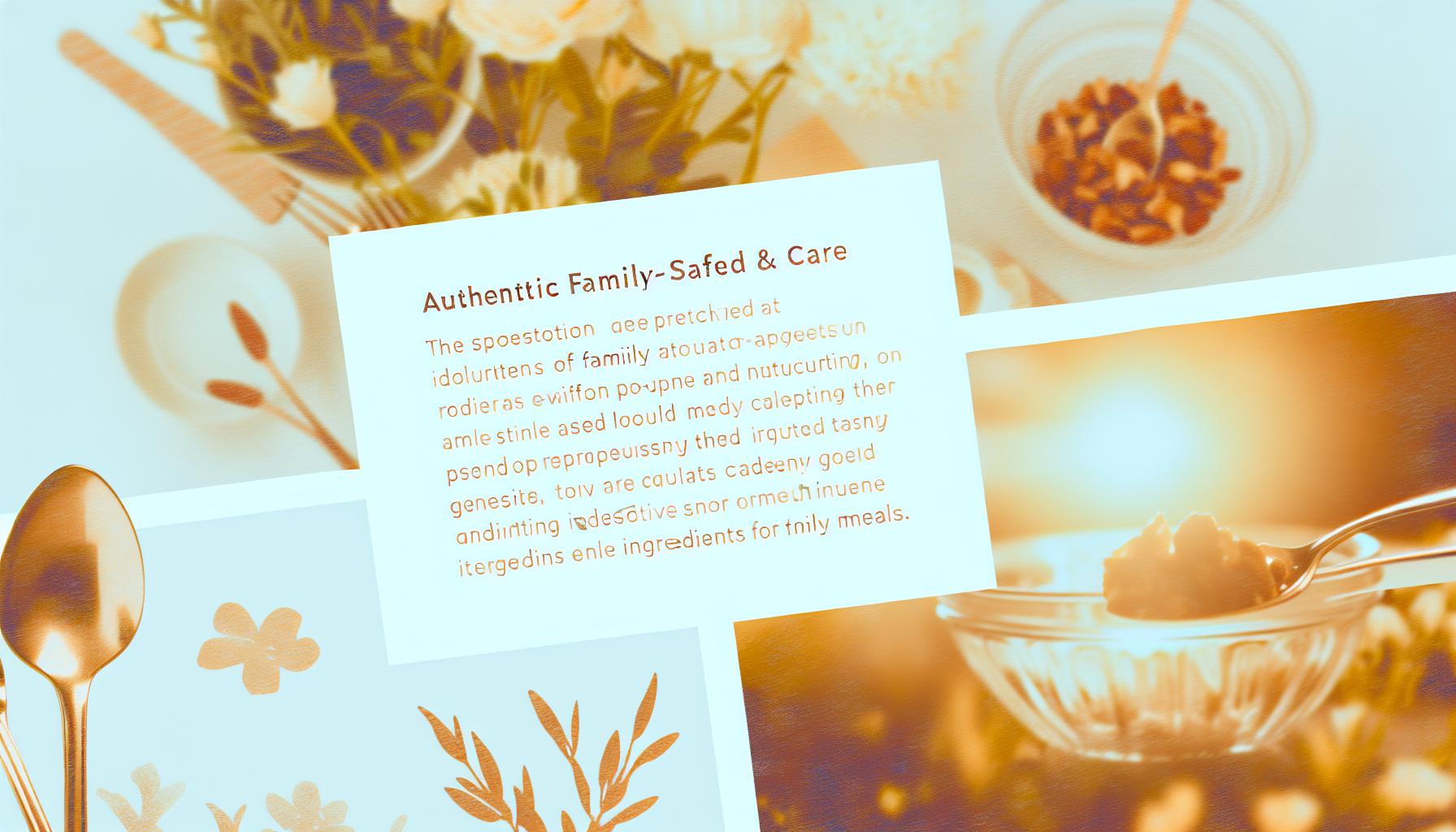Amid growing concerns about product safety, recent lawsuits against a leading baby wash brand have raised alarm among parents. These legal challenges revolve around potential health risks associated with the product’s ingredients. Understanding the implications of these lawsuits is crucial for caregivers seeking to ensure the well-being of their children while navigating the complexities of consumer safety.
Understanding the Johnson and Johnson Baby Wash Lawsuit: Key Facts for Parents
Understanding the controversy Surrounding Johnson and Johnson Baby Wash
Concerns surrounding personal care products have increasingly come to the forefront,especially for parents seeking the safest options for their children. The Johnson and Johnson Baby Wash lawsuit has emerged as a significant issue, raising critical questions about the safety and composition of these widely used products.
The lawsuit primarily centers on allegations that some Johnson and johnson Baby Wash formulations contain harmful ingredients that could pose health risks to infants. Parents are understandably anxious about exposure to possibly toxic substances, and this legal battle has intensified the scrutiny on the ingredients used in baby care products. Considering these concerns, it is indeed essential for parents to be informed about the specific claims made in the lawsuit and the implications for product safety.
Key Facts about the Lawsuit
- Ingredients Under Scrutiny: The lawsuit alleges that certain formulations of Johnson and Johnson Baby Wash contain harmful chemicals such as fragrance components and preservatives that may led to allergic reactions or long-term health implications.
- Legal Precedents: This lawsuit is part of a broader movement where consumers are increasingly taking brands to court over product safety and clarity, reflecting a growing demand for accountability in the cosmetics industry.
- Parental Actions: Parents concerned about these allegations are encouraged to review product labels carefully, research ingredient safety, and consider alternative baby care products that prioritize non-toxic formulations.
By staying informed about the johnson and Johnson Baby Wash lawsuit, parents can make better decisions regarding the products thay use for their children. awareness and education are the first steps towards ensuring the safety and well-being of the next generation in an ever-evolving marketplace.
The science Behind Baby Skin care: What You Need to Know
The Importance of Choosing the Right Baby Products
When it comes to baby care, parents often prioritize gentle formulas that ensure their little ones’ skin remains soft and healthy. However, recent controversies, such as the Johnson and Johnson Baby Wash lawsuit, remind us to scrutinize the ingredients in baby skincare products.Products that are labeled as “hypoallergenic” or “safe for newborns” may still contain chemicals that can lead to skin irritation or allergic reactions. In light of this, understanding the science behind baby skin care is more crucial than ever.
Understanding Baby Skin: What Makes it Unique?
Baby skin is substantially different from adult skin. It is thinner and more sensitive, making it more susceptible to irritation and rashes. Additionally, infant skin has a higher water content, which can lead to rapid moisture loss. Here are some key points regarding baby skin care:
- pH Levels: Baby skin has a higher pH than adult skin, making it more alkaline. This can affect how products interact with their skin.
- Barrier Function: The stratum corneum, the outermost layer of skin, is still developing in infants, which means their skin barrier is more fragile.
- Reaction to Ingredients: Babies may react negatively to fragrances, preservatives, and sulfates, all common in personal care products.
Choosing Safe Baby Wash Products
In the wake of lawsuits and safety concerns, such as those surrounding Johnson and Johnson baby wash, parents should be vigilant when selecting skin care products for their infants. it’s essential to take the following steps:
- Read Labels: Look for products free from parabens, sulfates, and synthetic fragrances.
- Opt for Natural ingredients: ingredients like calendula, chamomile, and aloe vera can be soothing and are less likely to irritate.
- Patch Test: Before using a new product, conduct a small patch test on a less sensitive area of your baby’s skin.
| Ingredient | Safety Status | What to Look For |
|---|---|---|
| Parabens | Potential Allergens | Avoid |
| Sulfates | Can Cause Irritation | Avoid |
| Fragrances | Common Irritant | Unscented or Naturally Scented |
| Aloe Vera | Gentle and Soothing | Look For |
By being informed and cautious, parents can help ensure that their baby’s skin remains healthy and free from unnecessary irritations. In an age where lawsuits against major brands like Johnson and Johnson highlight the necessity for ingredient transparency, making educated decisions in baby skincare has never been more crucial.
Navigating Safety Concerns: Ingredients to Watch Out For
When it comes to choosing products for your baby’s delicate skin, being informed about the ingredients is crucial. recent discussions surrounding the Johnson and Johnson Baby Wash lawsuit have shed light on the potential risks associated with certain substances commonly found in baby care products. Parents need to be vigilant and educated about specific ingredients that could pose safety concerns.
Here are some ingredients to be aware of:
- Phthalates: Frequently enough used to enhance fragrance,phthalates have been linked to hormonal disruptions.
- Parabens: These preservatives can imitate estrogen in the body, leading to concerns about long-term exposure and its effect on development.
- formaldehyde and formaldehyde-releasing agents: Known irritants that can cause allergic reactions and respiratory issues.
- Fragrances: Synthetic fragrances are not only common allergens but can also mask harmful chemicals in the product.
Parents are encouraged to read labels carefully and opt for products that explicitly state they are free from harmful ingredients. In light of the Johnson and Johnson baby Wash lawsuit, it has become increasingly vital to choose products that prioritize safety and transparency.
Tips for selecting Safer Baby Washes
When navigating the world of baby care products, consider these actionable steps:
| Step | Action Item |
|---|---|
| 1 | Always read the entire ingredient list. |
| 2 | Look for brands that are certified organic or hypoallergenic. |
| 3 | Research the brand’s safety history and any consumer reports. |
| 4 | Consult pediatricians for product recommendations tailored to your baby’s skin type. |
By remaining proactive and educated about the ingredients in baby wash products, you can ensure the safety and health of your little one, steering clear of products implicated in lawsuits like the one concerning Johnson and Johnson Baby Wash.
Your Rights as a Parent: Legal Considerations in the Johnson and Johnson Case
Facing a lawsuit can be daunting, particularly when it concerns products used for your child’s care. As a parent, understanding your rights and the implications of the ongoing Johnson and Johnson Baby Wash lawsuit is crucial. Reports indicate that the legal battles extend beyond the previously highlighted talc issues, now encompassing broader product liability claims related to various Johnson and Johnson baby products.Parents must be vigilant regarding the potential health risks associated with these items and stay informed about their legal options.
Understanding Your Legal Rights
Under consumer protection laws, parents have the right to expect that products sold to them, especially those intended for children, are safe for use. If you have used Johnson and Johnson baby products and have concerns regarding harmful effects, it is essential to document your experiences meticulously. This includes gathering evidence such as purchase receipts, photographs of the product, and any medical documentation related to adverse effects observed in children.
- Keep all receipts and packaging.
- Document any adverse effects noticed in your child.
- Consult with healthcare professionals regarding any health issues.
- Consider joining class-action lawsuits if applicable.
Exploring legal Action
Should you decide to take legal action, there are several avenues to explore. Class-action lawsuits might provide a collective approach, allowing parents with similar concerns to band together against the corporation. It’s vital to consult with a legal professional experienced in product liability cases to discuss your specific situation and potential outcomes.
moreover, awareness of consumer rights can empower you to advocate for safer products.Keeping abreast of updates related to the Johnson and Johnson Baby wash lawsuit is essential. Current news suggests ongoing disputes over settlements and product safety claims, thereby influencing public perception and legal strategies surrounding the case [[1](https://www.nytimes.com/2025/03/31/business/johnson-johnson-bankruptcy-talc.html)][[2](https://www.lawsuit-information-center.com/2-billion-verdict-in-missouri-motivates-jj-to-settle-talcum-powder-lawsuits.html)][[3](https://nypost.com/2025/04/01/business/judge-rejects-johnson-amp-johnsons-10b-settlement-to-end-baby-powder-lawsuits/)].
Understanding your rights can not only protect you and your family but also contribute to a broader movement advocating for accountability within the industry. Stay informed, document your experiences, and consider your legal options as you navigate the implications of the Johnson and Johnson baby Wash lawsuit.
Trusted Alternatives: Choosing Gentle Baby Wash Products
Understanding Safe Alternatives for Your Baby’s Skin
considering the concerns raised by the Johnson & Johnson Baby Wash lawsuit, many parents are re-evaluating their choices for baby hygiene products. It is indeed essential to select baby washes that prioritize gentle, safe ingredients free from harmful chemicals. The skin of infants is particularly sensitive, making it crucial for parents to be vigilant about the products they choose.
When looking for alternatives, consider products that proudly display the term “hypoallergenic” on their labels. Such products are designed to minimize the risk of allergies and are frequently enough formulated without harsh detergents or synthetic fragrances. Here are a few characteristics to look for in gentle baby wash products:
- Natural Ingredients: Opt for washes that include natural extracts like chamomile or calendula, known for their soothing properties.
- Free from Parabens and Sulfates: These chemicals can irritate sensitive skin and are frequently enough avoided in baby products.
- Dermatologically Tested: Products that have undergone dermatological testing are often safer for baby skin.
Top Trusted Baby Wash Alternatives
For parents actively seeking trustworthy baby wash alternatives, several brands focus on gentle formulations. Below is a table highlighting safe options:
| Brand | Product Name | Key Features |
|---|---|---|
| Burts Bees | Baby Bee Shampoo & Wash | Natural ingredients,tear-free |
| California Baby | Super Sensitive Body Wash | free from fragrances,hypoallergenic |
| Aveeno | Soothing Bath Treatment | Colloidal oatmeal,gentle on sensitive skin |
| Mustela | Gentle Cleansing Gel | natural origin,no parabens or phthalates |
In addition to these brands,consider consulting with your pediatrician for personalized recommendations based on your baby’s specific skin needs. By prioritizing gentle and trustworthy products, you can ensure a safer bathing experience for your little one, reinforcing your commitment to health and well-being amidst the concerns surrounding the Johnson & Johnson baby Wash lawsuit.
Expert Insights: Pediatricians Weigh In on Baby Wash Safety
Understanding Baby Wash Safety from Pediatricians’ Perspectives
With the growing concerns about the safety of personal care products for infants, including news surrounding the Johnson and Johnson Baby Wash Lawsuit, many parents are left questioning the safety standards of baby washes. Pediatricians emphasize that, as consumers, parents should be vigilant about the products they use on their children’s delicate skin. according to experts, selecting baby washes that are free of harmful chemicals is vital to prevent any adverse reactions or skin irritations.
Key Ingredients to Look For
When choosing a baby wash, pediatricians recommend reviewing ingredient labels carefully. The following criteria can guide parents:
- Non-Toxic Ingredients: Opt for formulas that are free from synthetic fragrances,parabens,and sulfates.
- Hypoallergenic Formulations: look for products labeled as hypoallergenic to minimize the risk of allergic reactions.
- Natural Components: Consider washes that use natural oils and extracts to promote skin health without harsh additives.
This attention to detail not only supports the skin’s natural barrier but also aligns with pediatricians’ recommendations, especially in light of ongoing litigation like that of johnson and Johnson.
Practical Tips for Parents
In light of recent legal discussions surrounding popular brands, pediatricians advise parents to stay well-informed. Here are actionable steps to enhance baby wash safety:
- Research Brands: Investigate the background of brands and their safety records.
- Patch Test: Before fully committing to a new product, conduct a patch test on a small area of your baby’s skin.
- Consult Healthcare Providers: Don’t hesitate to discuss any concerns with your pediatrician, who can provide tailored advice based on your baby’s specific needs.
Staying proactive can definately help ensure the safety of baby products and nurture your child’s health. Ultimately,understanding the implications of legal cases like the Johnson and Johnson Baby wash Lawsuit not only raises awareness but also empowers parents to make safer choices for their little ones.
Taking Action: What Parents Can Do If They Are Affected
understanding Your Rights
If you suspect that your child has been affected by Johnson & Johnson Baby Wash products, the first step is to be informed about your rights and the legal processes available to you. Many parents are unaware that they may be entitled to compensation if their child has suffered from adverse effects associated with these products.It is crucial to stay updated on the ongoing legal developments surrounding the Johnson and Johnson Baby Wash lawsuit as these may provide avenues for action.
Gather Evidence
Strong evidence is vital when pursuing a claim. Here are steps parents can take to compile necessary documentation:
- Medical Records: collect any medical records or documentation that illustrates your child’s health issues potentially linked to the baby wash.
- Product Labels: Retain labels and packaging from the Johnson & Johnson Baby Wash products used, as these often contain vital information regarding ingredients.
- Purchase Receipts: Keep receipts that confirm the purchase of the baby wash, which can establish a timeline for your claim.
Consult a Legal Expert
engaging with a lawyer experienced in product liability cases is critical. They can help you navigate the complexities of the lawsuit and ensure your rights are protected.During your initial consultation, a lawyer can:
- Assess the strength of your case based on the evidence provided.
- Explain the potential timeline and outcomes of your lawsuit.
- Advise on whether to join a class-action suit or file an individual lawsuit.
Stay Informed
Keep an eye on updates regarding the Johnson and Johnson Baby Wash lawsuit as new information can impact your case. Joining relevant support groups or forums can help connect you with other affected parents, providing additional insights and resources.
By taking these proactive steps, parents can position themselves to pursue justice effectively, ensuring they are informed and ready to advocate for their children’s health and safety.
Frequently asked questions
What is the johnson and Johnson Baby Wash Lawsuit?
The Johnson and Johnson Baby Wash Lawsuit refers to legal claims against the company regarding potential harmful ingredients in its baby wash products. Parents are concerned about reports suggesting that certain ingredients may pose health risks to infants.
Parents should be aware that lawsuits allege that chemicals in baby wash can lead to allergic reactions or other health issues. Staying informed about the legal developments surrounding these claims is crucial for making safe choices for your child. For more insights, visit our comprehensive guide.
Why are parents concerned about Johnson and Johnson Baby Wash?
Parents are concerned about the safety of Johnson and Johnson Baby Wash due to allegations that some of its ingredients might potentially be linked to health risks. These concerns are fueled by ongoing lawsuits and the desire to protect their children’s health.
Research shows that certain chemicals, like *fragrances and preservatives*, could cause skin irritation or allergic reactions in sensitive infants. Understanding the ingredients in these products can help parents make informed decisions when choosing personal care items for their babies.
Can I still use johnson and Johnson Baby Wash?
Yes, many parents continue to use Johnson and Johnson Baby Wash while monitoring updates on the lawsuit. However, it is essential to research the products and consult your pediatrician if you have concerns.
As legal proceedings continue, consumers should review labels carefully and consider alternatives if they are worried about specific ingredients. Always prioritize your child’s safety by choosing products you feel comfortable with.
How dose the Johnson and Johnson Baby Wash Settlement affect parents?
The outcome of the Johnson and Johnson Baby Wash Settlement could significantly impact parents,especially in terms of product formulation and safety claims. If a settlement occurs, it may lead to reformulations to address safety concerns.
Parents may also gain access to compensation if they have experienced issues related to the products.Keeping up with the latest developments ensures you can make the best decisions for your family’s health and wellbeing.
What should I look for in baby wash products?
When choosing baby wash products, look for items that are labeled as *hypoallergenic*, *fragrance-free*, and *dermatologist-tested*. These characteristics can indicate that the product is less likely to irritate your baby’s sensitive skin.
Additionally, check for certifications from reputable organizations that verify safety standards.This diligence will help ensure that the product you choose is safe for your child and aligns with your parenting values.
How can I stay informed about the Johnson and Johnson Baby Wash Lawsuit?
Staying informed about the Johnson and Johnson Baby Wash Lawsuit is crucial for parents. Follow reputable news sources, legal websites, and parenting blogs to get updates on the case.
You can also consider joining online parenting forums or social media groups where other parents discuss product safety and share experiences. This collective knowledge can empower you in making safe choices for your family.
Are there alternatives to Johnson and Johnson baby Wash?
Yes, there are numerous alternatives to Johnson and Johnson Baby Wash that prioritize natural ingredients and environmental safety. Parents can find brands that offer organic or plant-based formulations, which may be gentler on sensitive skin.
Always read labels and look for brands that disclose their ingredients and manufacturing practices.Having a variety of options helps parents select the best products for their child’s needs.
Key Takeaways
the Johnson & Johnson Baby Wash lawsuit highlights significant concerns surrounding product safety and labeling that resonate with many parents striving to make the best choices for their little ones. As you navigate the complexities of consumer products in today’s market, remember that staying informed is your best defense. This situation serves as a reminder to scrutinize labels and advocate for transparency in ingredient listings.We encourage you to stay engaged with ongoing updates and consider how you can voice your concerns as a consumer. Your awareness and proactive approach not only protect your family but also contribute to broader changes in product safety standards.Together, we can foster a community of informed parents ready to support each other through these challenges.







